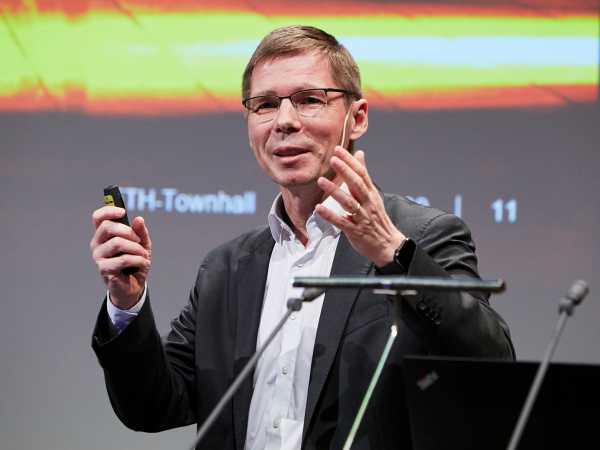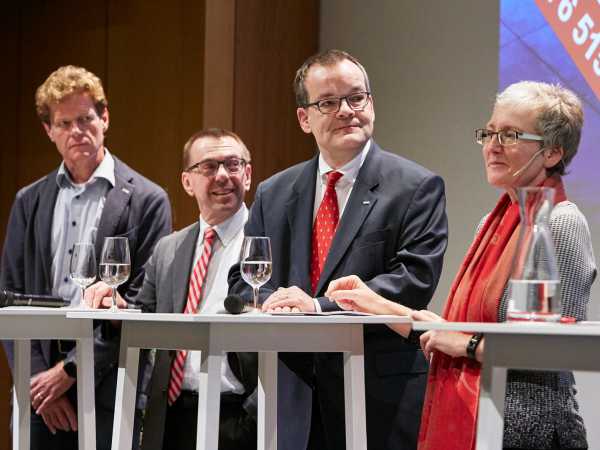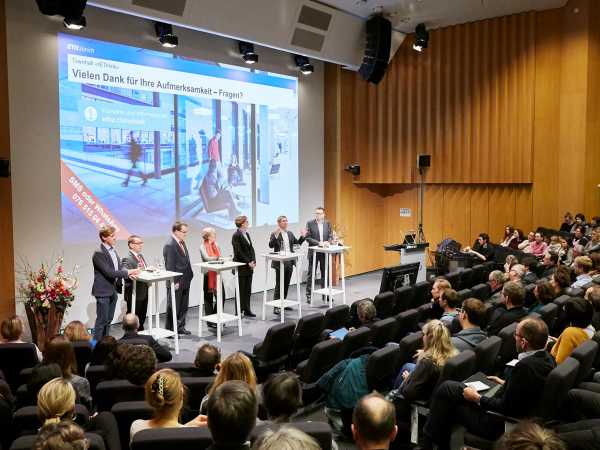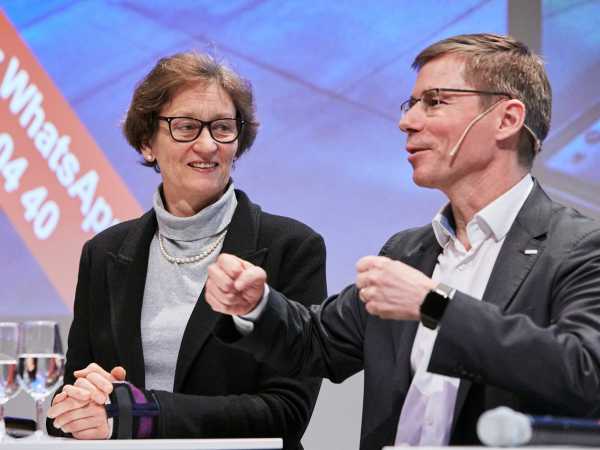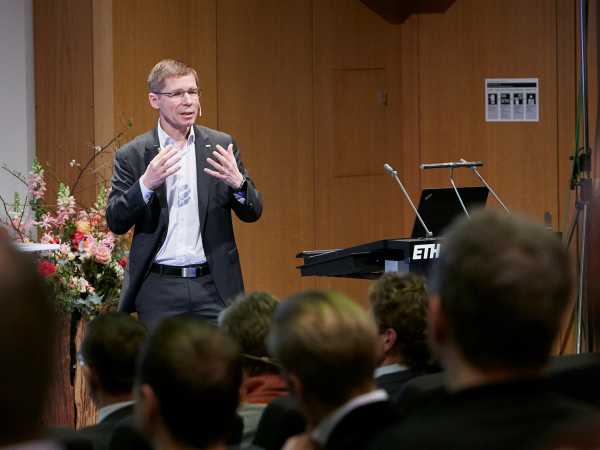rETHink is taking shape
In the Executive Board’s Town Hall forum on February 4, the focus was on the sweeping initiative to refine ETH’s organisational structure. ETH members are invited to help shape rETHink through various forms of participation.
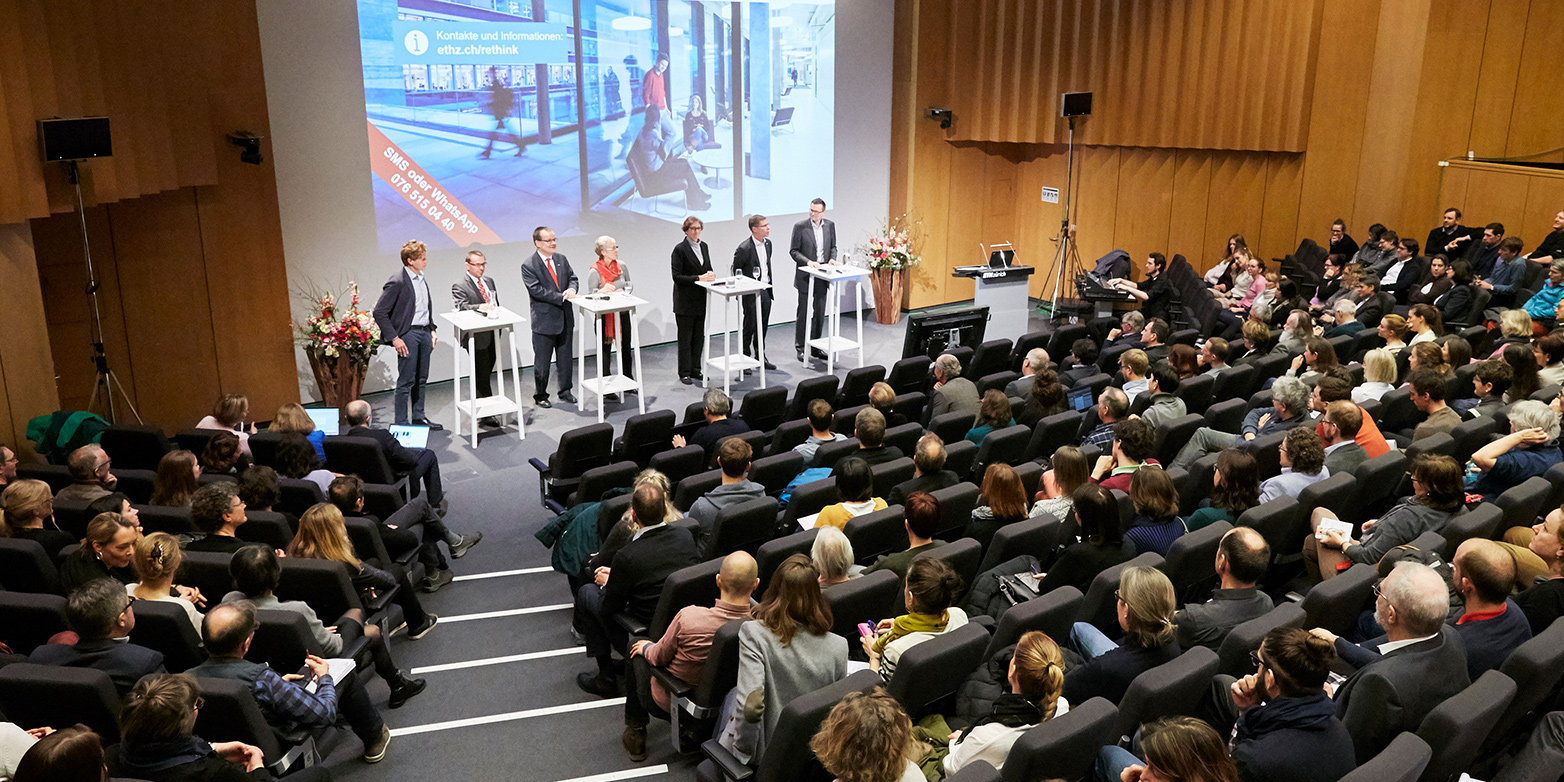
Whether it’s milestone achievements in creating a secure internet or in quantum physics, far-reaching curriculum reforms, the Rehab Initiative, the upcoming second Cybathlon, a record number of spin-offs that make Zurich a hotspot for investors, the ETH-wide diversity initiative, or the national energy prize for the underground energy storage system on the Hönggerberg campus: ETH’s track record is outstanding.
ETH President Joël Mesot could have reported in much more detail on these subjects in the Town Hall forum on Tuesday, 4 February. However, the discussion centred on rETHink, the project aimed at further developing the ETH organisational structure, which the Executive Board and a project group have been working on since the middle of last year. With the launch of six rETHink working groups, other sections of the university are now also involved in the project.
Met with both approval and criticism
One of its elements is the addition of two new Vice Presidents to the Executive Board – Knowledge Transfer and Corporate Relations, and Personnel Development and Leadership. This required an amendment to ETH Zurich’s Organisation Ordinance (OV), which has recently come into force. Mesot spoke again about the internal consultation on the audit. Many participants shared the view that the university needs to adapt structurally to the changed conditions.
However, they also expressed criticism of the decision to expand the ETH management to a seven-member board. For example, they pointed to the insufficient attention paid to participation rights and suspected that the change was too strongly driven by current problems. “I fully understand this feedback,” said Mesot. “However, it is important to clarify that we have made this rapid progress because, after careful analysis, we identified a need for rapid action.” The university’s enormous growth in recent years has pushed the organisation to its limits. The strengthening of personnel management, development and knowledge transfer on the Executive Board is urgent. It is equally important to enable the university to devote more time to strategic tasks. Given these circumstances, the expansion is appropriate.
Work on professorships of the future
The concerns voiced that teaching and research could become less important at senior management level are being addressed. The revised OV ensures that a majority of the Executive Board is made up of professors. It was also made clear that management of the professors remains the responsibility of the President. The member of the Executive Board responsible for HR leadership, along with the other board members, support him in this task.
As the operational co-leader of one of the workstreams, Nina Buchmann gave an insight into the work that has begun in the “Professorships” workstream, managed by Detlef Günther. After taking stock of the roles, rights, duties and expectations of a professorship, a broad discussion will take place, followed by the development of values and guidelines. The workstream is expected to culminate in a proposal for optimising professorships and their environment. Intensive exchange with other rETHink workstreams is essential to this process.
Participation is key
Mesot emphasised several times that the participation of and interaction with ETH members are central to the development of rETHink. “rETHink is a collective learning process. We are therefore counting on your participation.” Werner Wegscheider, President of the University Assembly, agreed with this appeal. He outlined how ETH members can get involved. Interested parties can contact the president of the respective university group to which they belong.
Townhall 4th of February 2020
Many different levels of participation
In the subsequent discussion in the plenary session, one of the questions asked was how much time would be expected for participation. Nina Buchmann explained that this depended on the type of participation. This could be limited to an assignment of two to three hours (e.g. participation in a focus or sounding group) or up to a temporary role of 20 percent; for example, intensive participation in a core team or management of a working group. Furthermore, the duration may vary greatly. It might be a short one-off assignment, or two to three months for a working group or a whole year in the case of a core team. Joël Mesot explained that the question of how these assignments will be realised and, where necessary, compensated, was still being discussed and defined.
